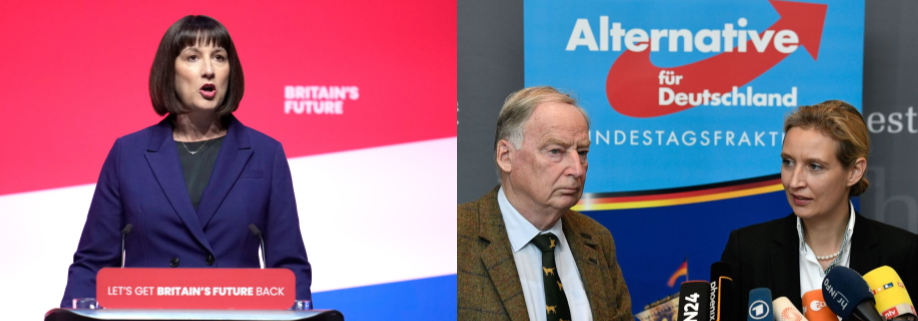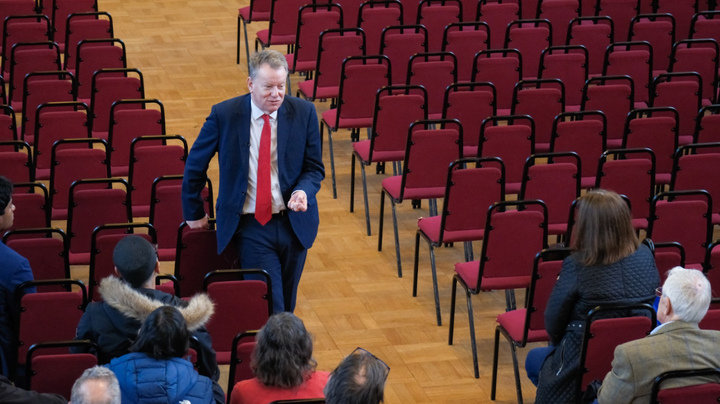The Perspective #12: February25

The German Federal Election 2025
Elize Hartzer
On the 23rd of February, Germany held a record breaking election. The snap election was called in 2024 due to a governmental crisis in which the 3-party coalition broke down, lost its majority, and intentionally lost a vote of no-confidence.
Germany uses a proportional representation system to elect the 630 representatives to its Bundestag - similar in style to AMS. This is important as it means that the share of votes a party receives is closely equated to the number of seats it receives in Parliament. Subsequently, parties do not win majorities. So, coalitions are negotiated by the winning party in order for the government to have one, dissimilar to the UK’s FPTP system in which seats are distributed by the number of constituencies won (causing large discrepancies between the total share of votes and seats in Westminster).
In the previous Bundestag, SPD (Social Democrats) were the largest governing party with 206 seats. However, in 2025 they decreased to a record low of 120. Additionally, the other two parties within the coalition were CDU (Christian Democratic Union), with 197 seats, and Greens, with 118. This year, CDU has become the largest party with 208 seats and Greens have decreased to 85. However, what was the 5th largest party in 2021, has now become the 2nd; with a 20% share of the vote and 152 seats, AfD (Alternative for Germany) has hit a record high result. Whilst Friedrich Merz’s winning CDU party is centre-right, he has stated he will talk with the centre-left parties and not form a coalition with AfD due to its extremist right-wing stance.
This result is somewhat concerning for a global reason. Germany has clearly shifted from a balance of centre-right and centre-left to simply centre-right and far-right, which has not been uncommon in recent years internationally. With its neighbour France also having taken a lean to the far-right in 2024, as well as Elon Musk (an embodiment of America’s current right) having endorsed AfD himself, and Nigel Farage’s reform party in the UK, it becomes apparent that the world is shifting further and further right.
Political scientists who looked into the results of Germany’s election discovered that there was a strong regional divide of AfD voters and ‘We find indications that in regions where the AfD was particularly politically successful, the people there give lower sympathy ratings to disadvantaged groups and social minorities’. Not only this, but ‘in AfD strongholds, even people who do not vote for the party are more prejudiced against minorities’. Clearly, the societal division has become increasingly stronger, which leads to the question: why has political unrest led to polarised extremist views - especially when there are so many historic flaws?
Intense pressure on Reeve’s plan for growth
Saad Jadoon
Rachel Reeve’s plans for growth suffered a double blow in February following bleak predictions from the Bank of England concerning inflation and economic growth- suggesting that the UK may be heading toward a period of ‘stagflation’-a combination of high inflation and low growth which is particularly damaging for an economy.
On February 5th, the central bank cut interest rates from 4.75% to 4.5%- the third such cut in six months. This announcement was underscored by concerns for growth, as the bank now expects the UK economy to grow by just 0.75% in 2025, compared to a forecast of 1.5% made in November. The bank stated that this change reflected fragile business and consumer confidence following a largely unpopular Autumn Budget.
In addition, the bank expects inflation to ‘rise quite sharply’ from 2.5% currently to 3.7% by the summer, nearly double the Bank of England target for inflation at 2%. This is largely attributed to rising household energy prices, as well as water bills. To further add to the chancellor’s woes, business leaders have cautioned that the £25bn increase in employers' national insurance contributions will force higher prices or employee lay-offs.
These developments put the government in a difficult position- these factors coupled with higher borrowing costs and a pledge to add £13.4bn per year to the defence budget from 2027 mean that the Chancellor may have to cut spending or raise taxes to ensure that the fiscal rules are still being met.
The government’s inability to improve the economic outlook is now being reflected in public opinion- an Ipsos poll from 17th February shows that more than half of the public feel less confident about economic growth whilst overall, 50% of Britons believe that Reeves has been doing a poor job as Chancellor. Perhaps most concerningly for the labour party, two consecutive YouGov polls in February placed Reform UK above Labour, with the latter showing Reform at 26% of the vote share and Labour at 25%. Such a dramatic decline in support is exacerbating pressure on Labour and the Chancellor in particular to turn the tide and deliver the growth promised during their election campaign.




Comments ()